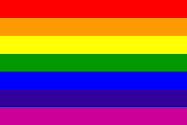GLSEN Calls on Schools, Nation to Embrace Solutions to Bullying Problem
NEW YORK, April 9, 2009 - An 11-year-old Massachusetts boy, Carl Joseph Walker-Hoover, hung himself Monday after enduring bullying at school, including daily taunts of being gay, despite his mother’s weekly pleas to the school to address the problem. This is at least the fourth suicide of a middle-school aged child linked to bullying this year.
Carl, a junior at New Leadership Charter School in Springfield who did not identify as gay, would have turned 12 on April 17, the same day hundreds of thousands of students will participate in the 13th annual National Day of Silence by taking some form of a vow of silence to bring attention to anti-LGBT (lesbian, gay, bisexual and transgender) bullying and harassment at school. The other three known cases of suicide among middle-school students took place in Chatham, Evanston and Chicago, Ill., in the month of February.
"Our hearts go out to Carl’s mother, Sirdeaner L. Walker, and other members of Carl's family, as well as to the community suffering from this loss," GLSEN Executive Director Eliza Byard said. "As we mourn yet another tragedy involving bullying at school, we must heed Ms. Walker’s urgent call for real, systemic, effective responses to the endemic problem of bullying and harassment. Especially in this time of societal crisis, adults in schools must be alert to the heightened pressure children face, and take action to create safe learning environments for the students in their care. In order to do that effectively, as this case so tragically illustrates, schools must deal head-on with anti-gay language and behavior."
Two of the top three reasons students said their peers were most often bullied at school were actual or perceived sexual orientation and gender expression, according to From Teasing to Torment: School Climate in America, a 2005 report by GLSEN and Harris Interactive. The top reason was physical appearance.
"As was the case with Carl, you do not have to identify as gay to be attacked with anti-LGBT language," Byard said. "From their earliest years on the school playground, students learn to use anti-LGBT language as the ultimate weapon to degrade their peers. In many cases, schools and teachers either ignore the behavior or don’t know how to intervene."
Nearly 9 out of 10 LGBT youth (86.2%) reported being verbally harassed at school in the past year because of their sexual orientation, nearly half (44.1%) reported being physically harassed and about a quarter (22.1%) reported being physically assaulted, according to GLSEN’s 2007 National School Climate Survey of more than 6,000 LGBT students.
In most cases, the harassment is unreported. Nearly two-thirds of LGBT students (60.8%) who experience harassment or assault never reported the incident to the school. The most common reason given was that they didn’t believe anything would be done to address the situation. Of those who did report the incident, nearly a third (31.1%) said the school staff did nothing in response. While LGBT youth face extreme victimization, bullying in general is also a widespread problem. More than a third of middle and high school students (37%) said that bullying, name-calling or harassment is a somewhat or very serious problem at their school, according to From Teasing to Torment. Bullying is even more severe in middle school. Two-thirds of middle school students (65%) reported being assaulted or harassed in the previous year and only 41% said they felt very safe at school.
Carl's suicide comes about a year after eighth-grader Lawrence King was shot and killed by a fellow student in a California classroom, allegedly because he was gay.
GLSEN recommends four simple approaches schools can take to begin addressing bullying now.
Said Walker in the Springfield Republican: "If anything can come of this, it's that another child doesn't have to suffer like this and there can be some justice for some other child. I don't want any other parent to go through this."
About GLSEN
GLSEN, the Gay, Lesbian and Straight Education Network, is the leading national education organization focused on ensuring safe schools for all students. Established nationally in 1995, GLSEN envisions a world in which every child learns to respect and accept all people, regardless of sexual orientation or gender identity/expression. GLSEN seeks to develop school climates where difference is valued for the positive contribution it makes to creating a more vibrant and diverse community. For information on GLSEN's research, educational resources, public policy advocacy, student organizing programs and educator training initiatives, visit www.glsen.org.





No comments:
Post a Comment